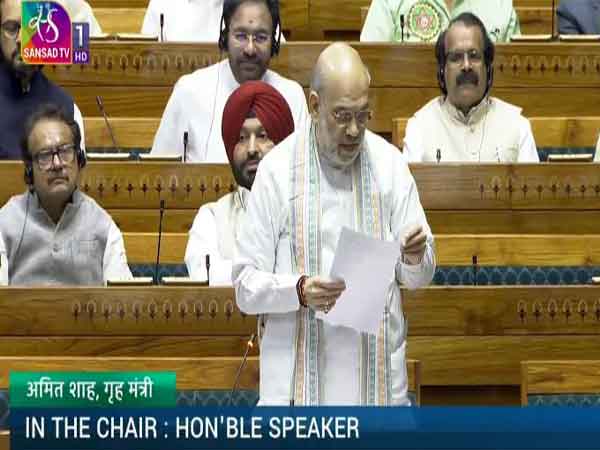
New Delhi [India], April 2 (ANI): Union Home Minister Amit Shah on Wednesday rejected opposition members' criticism that the government wants to interfere in the religious conduct of Muslims through the Waqf Amendment Bill and said the provisions in the legislation aim at better management of Waqf properties.
Participating in the debate in Lok Sabha on the Waqf (Amendment) Bill, 2025, Amit Shah said that the bill would not be implemented with retrospective effect and opposition members were trying to mislead and create fear among members of Muslim community .
"I stand in support of the Bill introduced by my ministerial colleague. I have been carefully hearing the discussion going on since 12 noon...I feel that there are several misconceptions among several Members, either genuinely or politically. Also, through this House, attempts are being made to spread those misconceptions across the country," he said.
Amit Shah said that there is no provision in the bill for appointment of non-Muslims in the processes related to the religion.
"Waqf Act and Board came into effect in 1995. All the arguments about the inclusion of non-Muslims inclusion are about interference in the Waqf. First of all, no non-Muslim would come into the Waqf. Understand this clearly...There is no such provision to include any non-Muslim among those who manage the religious institutions; we do not want to do this...This is a huge misconception that this Act will interfere with the religious conduct of Muslims and interfere with the property donated by them. This misconception is being spread to instil fear among minorities for their vote bank," he said.
"Where will non-Muslim members be included? In Council and Waqf Board . What would they do? They won't run any religious activity. They would only look after the administration of property donated by someone under Waqf Law, whether it is being done as per law, whether the property is being used for the intent with which it was donated," he added.
Amit Shah said that a person can donate only property that belongs to him and cannot donate property which belongs to the government or any other individual.
He said changes have been made only in provisions related to Council and Board In the 1995 Act, which pertains to administrative duties.
Advancing the legislation for approval in the House, the Minority Affairs Minister Kiren Rijiju stated that the bill will not have retroactive effects and the Centre is not aiming for additional authorities.
"If our nation possesses the biggest Waqf property globally, then why haven’t we utilized it for enhancing education, healthcare, skills training, and generating income among impoverished Muslim communities? Why hasn't any advancement been achieved in this area until now?" asked Rijiju.
In addition to the Waqf (Amendment) Bill, 2025, Rijiju introduced the Mussalman Wakf (Repeal) Bill, 2024, for deliberation and approval in the Lok Sabha.
The legislation was previously introduced in the Lok Sabha back in August of the previous year, and a Joint Parliamentary Committee, led by BJP representative Jagdambika Pal, reviewed it.
The proposed legislation intends to revise the Act from 1995. This new Bill focuses on enhancing the governance and oversight of waqf estates within India. Its objective is to address the limitations present in earlier versions of the law and boost the effectiveness of Waqf councils. Key areas for improvement include refining the registration procedures as well as amplifying the use of technological solutions in maintaining waqf documentation. (ANI)